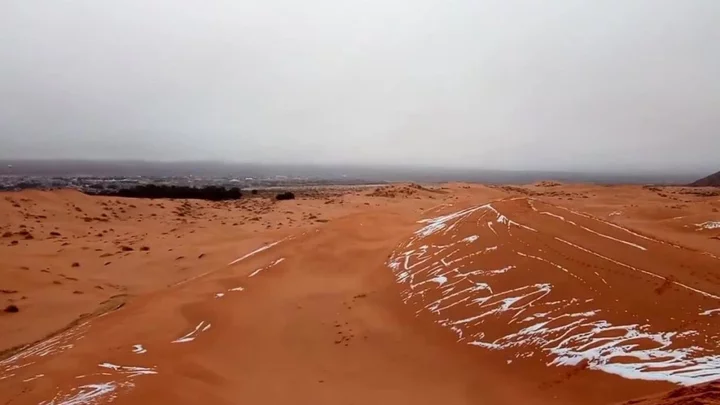It might sound more like the kind of idle daydream billionaires like Elon Musk would have, but could flooding the Sahara actually be the best way of tackling climate change in the future?
The idea of creating a new “sea” in Africa is being discussed, and it’s not the first time that the notion of a great oasis in the Sahara has been discussed among the scientific community.
As the ongoing climate crisis continues to worsen, the notion of flooding vast areas of the desert is being returned to once again [via IFL Science].
A new “sea” was first proposed following the study of the Messinian salinity crisis – which saw a dried-out area of the Mediterranean rejuvenated by the Zanclean flood, reconnecting the Mediterranean Sea to the Atlantic Ocean around 5.33 million years ago.
Sign up to our free Indy100 weekly newsletter
Given how the Mediterranean was transformed by the flood, the idea of flooding the Sahara to achieve similar results has been thrown around in the scientific community as far back as 1877, the Scottish engineer Donald McKenzie suggested flooding the El Djouf basin in Western Africa.
The idea is now returning to popularity as the world looks for solutions to the climate crisis.
One proposal centres on the Middle East’s Dead Sea and flooding the area using water from the Red Sea to the Dead Sea Depression.
A vast sea in Africa could represent a hugely innovative step towards tackling climate change and fostering a new hub of life – but even the people suggesting work such a project acknowledge just how expensive and dangerous it is.
Even Y Combinator is a US startup accelerator who has described “desert flooding” as “risky, unproven, even unlikely to work”.
Only time will tell whether the notion of a new sea in the Sahara coud ever work, or whether it’ll remain the stuff of dreams.
Have your say in our news democracy. Click the upvote icon at the top of the page to help raise this article through the indy100 rankings.









